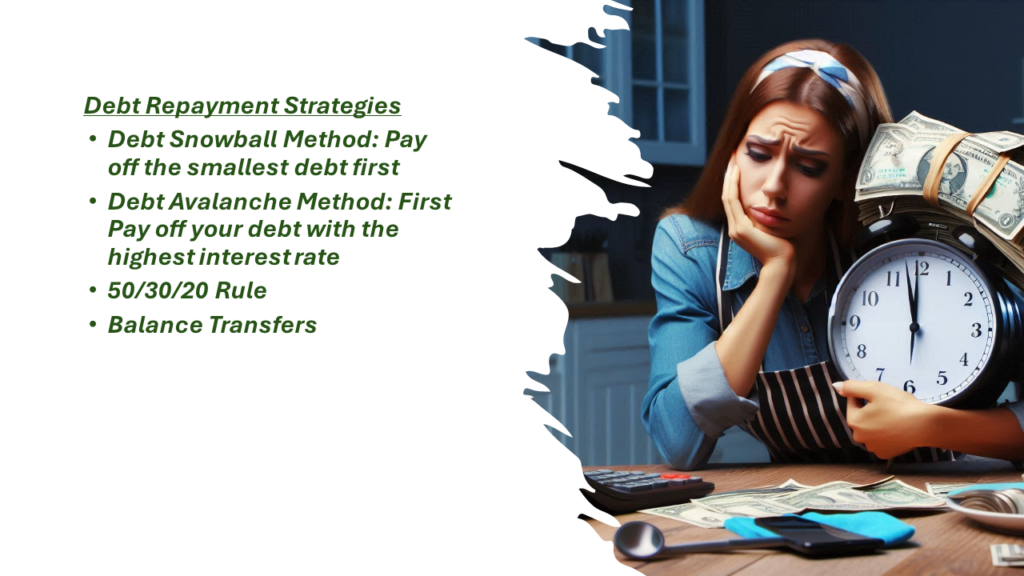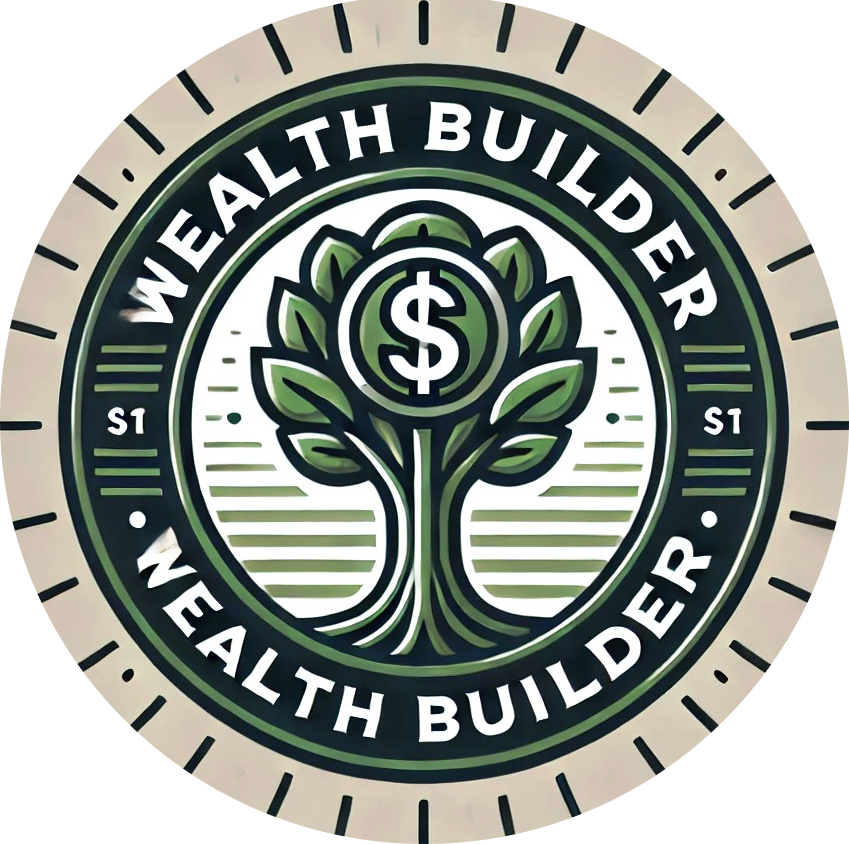Introduction

Imagine what life would be like without the stress of debt hanging over you. Sounds great, right? Did you know the average American has over $90,000 in debt? Debt can feel like a heavyweight, but with the right steps, you can lighten the load and take control of your finances. We’ll walk through some simple, effective strategies to help you pay off debt faster and get closer to financial freedom. Let’s break it down together and see how you can make it happen!
In this essay, we’re going to talk about some simple steps:
- Understanding your debt
- Making a budget
- Picking a repayment plan
- Boosting your income
- Cutting down on expenses
- Negotiating with creditors
- Building an emergency fund
- Staying motivated
By following these steps, you can get closer to being debt-free and control your money. Let’s get started!
Understand Your Debt
The first step to paying off debt faster is to get a clear picture of what you owe. To begin with, list all your debts, including how much you owe, the interest rates, and the minimum payments. Accordingly, you can see the big picture and understand exactly where you stand. After that, you’ll be able to make a more effective plan for paying off your debt. Thus, knowing what you owe is crucial for taking control of your finances.
Next, decide how to tackle your debts. You can either focus on paying off the high-interest ones first to save money over time or start with the smallest debts to feel motivated as you knock them out one by one.
Finally, make sure you understand the terms of your debts, like if any interest rates can change. Knowing these details will help you make smarter choices as you pay off your debt faster.
Making a Budget: The Key to Pay Off Debt Faster
Click Here for more on How To Create A Budget That Works for You: Budgeting Basic
Creating a budget is super important when it comes to managing your money and paying off debt faster. To begin with, write down all the money you earn, like your salary or any side jobs. This helps you see exactly how much you have to work with.
Then, list every expense, from big ones like rent to smaller ones like snacks. This shows where your money is going.
Once you know your income and expenses, the next step is to make a plan. Initially, decide how much to spend in each area. Most importantly, don’t forget to set aside money to pay off debt. Then, keep an eye on your spending and adjust your budget if things change, like getting a bonus or facing higher costs. By doing this, you’ll stay on track and pay off your debt faster!
Picking a Repayment Plan
Choosing the right way to pay off your debt can make a huge difference. There are a few strategies you can try:
Snowball Method: This involves paying off your smallest debt first. Focus on one debt at a time, and once you clear it, move on to the next smallest. This method gives you a quick sense of accomplishment keeping you motivated. (Click Here to Know More)
Avalanche Method: Here, you focus on the debt with the highest interest rate first. It saves you money in the long run, even if progress feels slower at first.
Other Strategies: You could also try the 50/30/20 Rule, which helps you budget your money, or balance transfers to reduce interest rates on credit card debt. The 50/30/20 Rule suggests you allocate 50% of your income to needs, 30% to wants, and 20% to savings and debt repayment.
Pick the method that feels right for you and stick with it!
Boosting Your Income To Pay Off Debt Faster
Increasing your income is a great way to pay off debt faster. Here are some ways to do it:
- Side Hustle: Take on extra work such as freelancing, tutoring, or driving for a ride-share service to earn more money.
- Gig Economy: Use platforms such as Upwork or TaskRabbit to find short-term jobs that fit your schedule.
- Ask for a Raise: Talk to your boss about getting a raise by highlighting your achievements.
- Sell Unused Items: Sell things you don’t need to make extra cash.
- Invest in Your Skills: Learn new skills to get better job opportunities in the future.
These methods can help you bring in more money and pay off debt faster.
Reducing Expenses To Pay Off Debt Faster
Reducing expenses is a smart way to manage your money and pay off debt faster. Here’s how:
- Spot Unnecessary Spending: Track where your money goes, for example, eating out or unused subscriptions, and cut back.
- Create a Spending Plan: Set limits for essentials such as rent and groceries, and stick to it.
- Cut Back on Extras: Cook at home and skip small splurges, such as daily coffee runs.
- Use Discounts: Look for coupons and deals to save more.
- Review Regularly: Check your budget often and adjust as needed.
These steps help you save money and pay off debt quicker!
Negotiating with Creditors
Negotiating with creditors can help you manage debt more easily. Here’s how:
- Understand Your Finances: To begin with, figure out what you owe and what you can afford to pay each month.
- Reach Out to Creditors: Then, contact your creditors and explain your situation. Ask if they can lower your interest rates, or adjust your payment plan.
- Ask for Lower Interest Rates: A lower interest rate can make your payments easier to handle.
- Negotiate a New Payment Plan: See if you can lower your monthly payments or extend the payment period.
- Consider Settlements: If possible, offer a lump-sum payment to settle the debt for less than you owe.
- Document Everything: Keep records of all communications and agreements to avoid any issues later.
These steps can help ease your financial stress and get you back on track.
Building an Emergency Fund
Building an emergency fund is a smart way to achieve financial stability and manage debt. Here’s how you can start:
- Know Why It’s Important: An emergency fund helps cover unexpected expenses, such as car repairs, without using credit cards or loans.
- Set a Savings Goal: Aim to save three to six months’ worth of living expenses.
- Open a Separate Account: Keep this money in a different savings account to avoid spending it.
- Start Small: Begin with small amounts and then increase gradually.
- Use Extra Income: Put windfalls such as tax refunds, into your fund.
- Review Regularly: Check and adjust your savings as needed.
By following these steps, you’ll create a safety net that helps you handle surprises without adding to your debt.
Stay Motivated
Staying motivated is super important when paying off debt. Here’s how to keep going:
- Set Clear Goals: Break your big goal into smaller steps. For example, paying off a certain amount each month.
- Track Your Progress: Use a chart or app to see how much debt you’ve paid off. Seeing progress keeps you motivated.
- Celebrate Milestones: Reward yourself for reaching goals, even small ones.
- Stay Positive: Focus on how far you’ve come and the benefits of being debt-free.
- Get Support: Share your goals with friends or join a support group for encouragement.
- Be Flexible: If things change, adjust your plan but keep aiming for your goal.
Conclusion
Paying off debt faster means understanding your money, making a solid budget, picking the right repayment plan, and staying motivated. So, figure out exactly what you owe and prioritize it. Then, create a budget that focuses on paying off debt, and choose a strategy like the debt snowball or avalanche method. Additionally, boost your income with side jobs or by asking for a raise, and cut unnecessary spending to free up more money for debt repayment. Build an emergency fund to cover unexpected costs and stay motivated by tracking your progress and celebrating small wins.
By following these steps, you can work towards becoming debt-free and create a stronger financial future. Remember, it takes time and effort, but with patience and dedication, you’ll reach your goals. Start today, and each step you take brings you closer to financial freedom and peace of mind.

